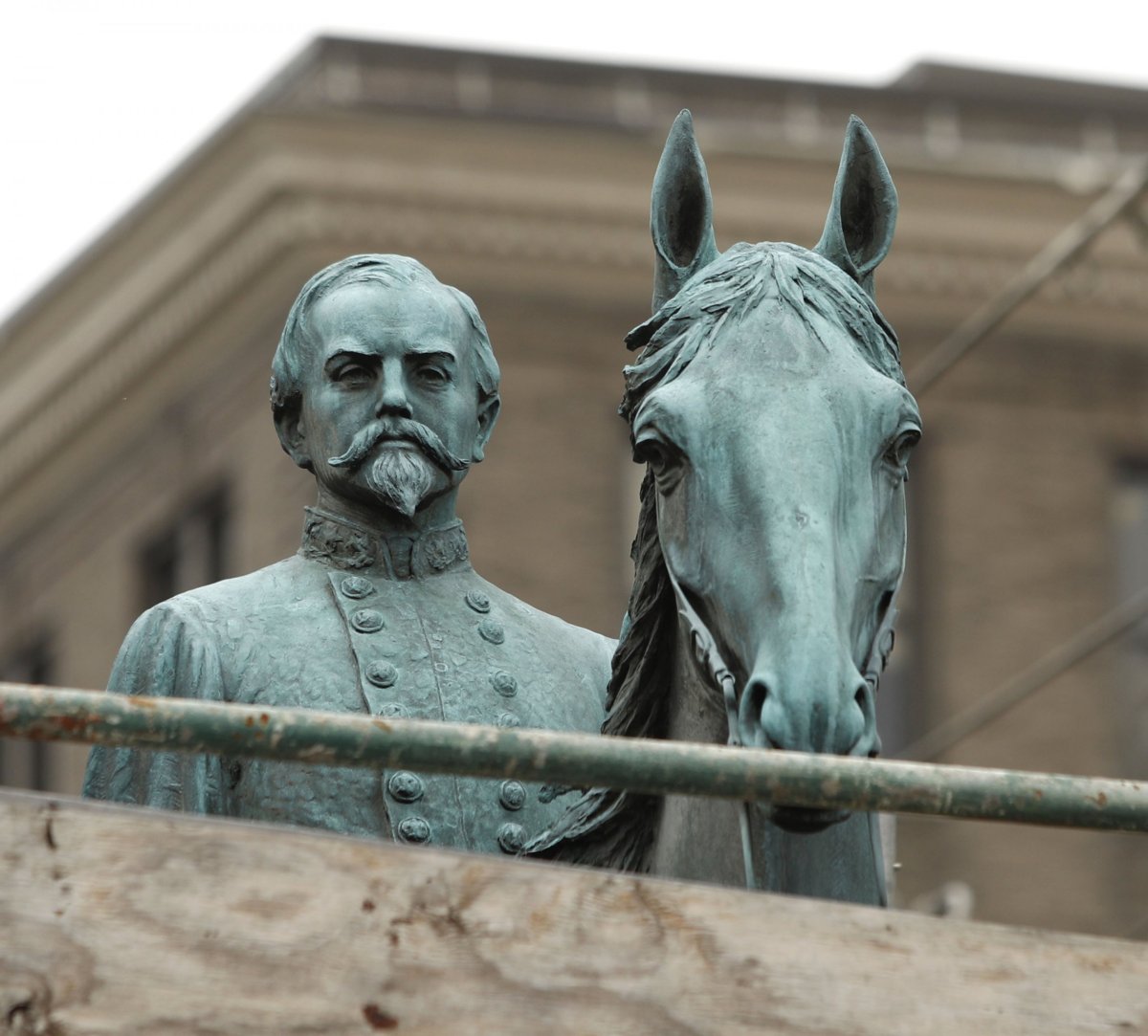This article first appeared on the Brookings Institution site.
Over the weekend, a car plowed into a crowd following a white supremacist rally in Charlottesville. One woman died.
While Virginia Governor Terry McAuliffe denounced the tragedy in strong terms, President Trump's first reaction was to blandly call for Americans to "love each other."
What's wrong with this? Well, several things.
First, the fact that there even was a white supremacist rally speaks to the way racism has festered in this country from the time the first slaves were transported here from Africa to now.
As a nation, we have coddled people who still identify with the Confederacy. This is a moral failure.
Why do we still pay homage to Confederate heroes? When one side loses a war, its history and its heroes are swept away, its history replaced by that of the victors.

Germany doesn't still celebrate the Nazis; the People's Republic of China does not still honor the Kuomintang.
So why have we allowed ourselves as a nation to continue along with the Robert E. Lee statue on the corner?
What happened in Charlottesville forced us to confront this ugly history.
Charlottesville helped reacquaint us with the fact that racism is a deep sore in this country, so deeply embedded in the American way of life that we would not recognize our country if its institutions had not been shaped by the many practices, conventions, and laws that have evolved to restrain and contain the ambitions of African Americans.
When Kenneth Frazier, CEO of Merck, resigned from the president's Manufacturing Council in response to President Trump's initial remarks, he did so as a rebuke not only to the president, but as a rebuke to 152 years of letting Confederate statues stand, letting white supremacists commit egregious acts of terror, letting police who beat and shoot black boys and men without provocation off the hook, and letting ourselves as a nation look the other way in the face of these humiliations, atrocities, and insults.
Second, President Trump, who has since strongly condemned the violence, demonstrated an alarming initial complacency with home grown terror—and then doubled down on his deficient response by swiftly tweeting harsh criticism of Mr. Frazier's exit from the council.
That the president of the United States would initially engage in crass political opportunism—and not condemn the violence when others across the political spectrum quickly did so—implies that at the highest levels, the reaction to violent racism is a bargaining chip. There is something deeply wrong with this.
President Trump's initial instinct also showed the president to be completely out of touch with contemporary mores.
Here is a man who has attacked his own party leaders, who is increasingly isolated, who has very little to show for his six plus months in office, and his reaction to this event is to tell everyone to "love each other," and at the same time, give the proverbial finger to one of the most respected CEOs in the country.
In the 21st century, no president should support racist acts of terror, nor should she or he treat racist acts of violence as a political chit, to be called in at the next election.
Finally, it should be obvious that race relations haven't necessarily gotten better since the election of President Barack Obama in 2008. When the Pew Research Center surveyed Americans in 2016 about racism and discrimination, a majority of whites thought that race relations had improved; blacks and Latinos did not agree.
But what is changing is that in an increasingly non-white America, and an America of increasing racial mixtures, there is greater sensitivity to social mores around extremist racist violence.
So today, we are starting to ask ourselves, why didn't the president condemn this act of violence in the strongest possible terms?
Why are there statues to Confederate heroes still gracing our public spaces and what are we going to do with them?
And today, Americans of all political stripes see the plowing down of engaged citizens by a white supremacist sympathizer as wholly un-American. Progress, though uneven, is welcome.
Camille Busette is director of the Brookings Race, Prosperity, and Inclusion Initiative and a senior fellow in Governance Studies, with affiliated appointments in Economic Studies and Metropolitan Policy.

Uncommon Knowledge
Newsweek is committed to challenging conventional wisdom and finding connections in the search for common ground.
Newsweek is committed to challenging conventional wisdom and finding connections in the search for common ground.
About the writer
To read how Newsweek uses AI as a newsroom tool, Click here.








